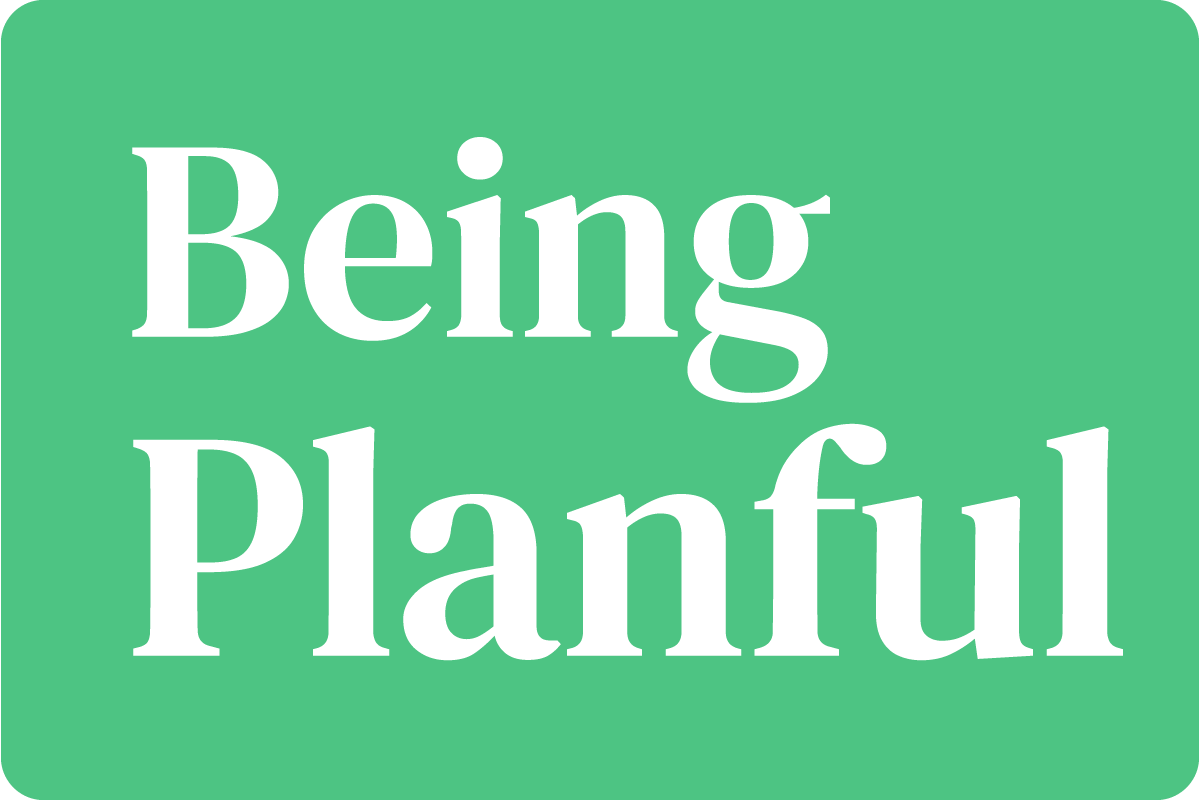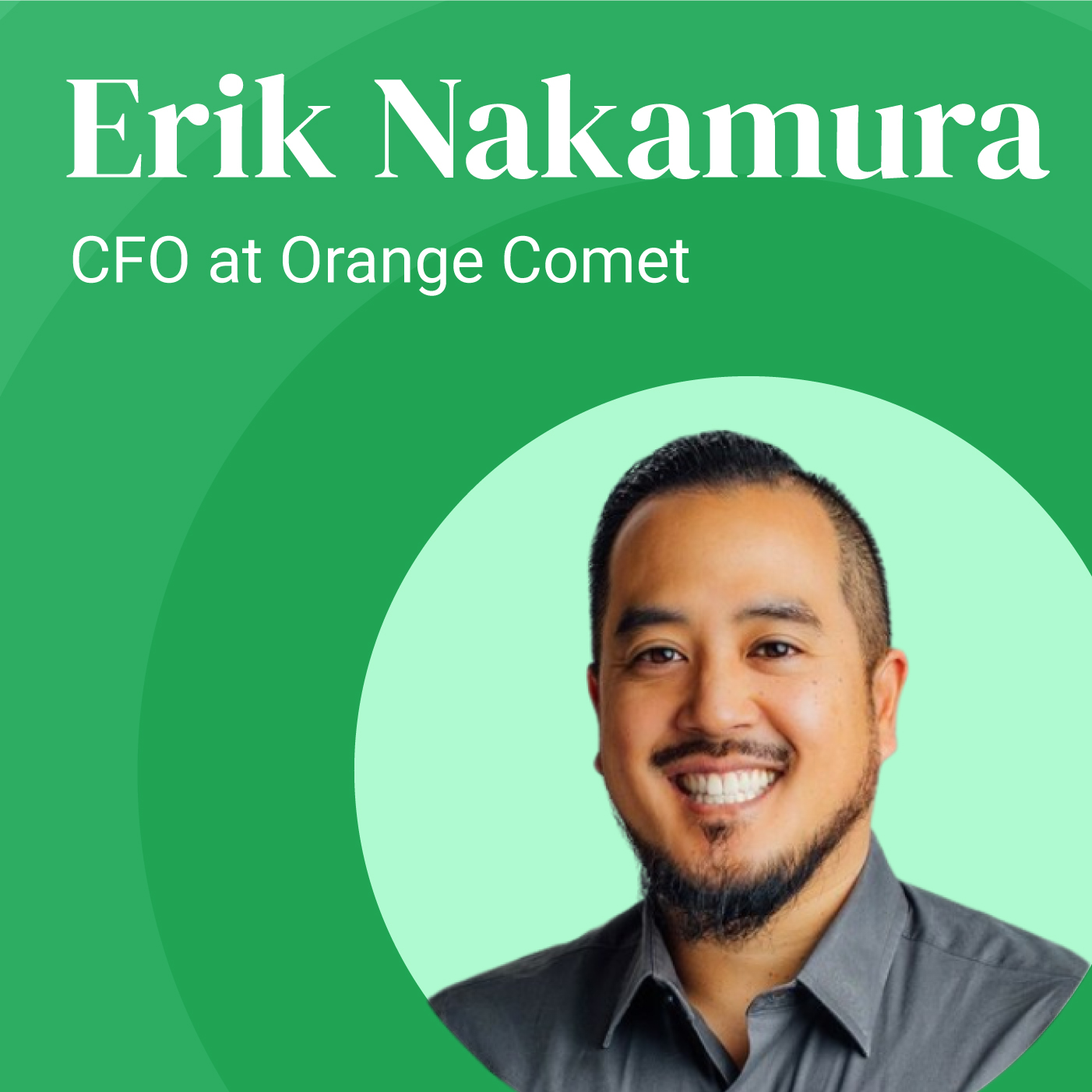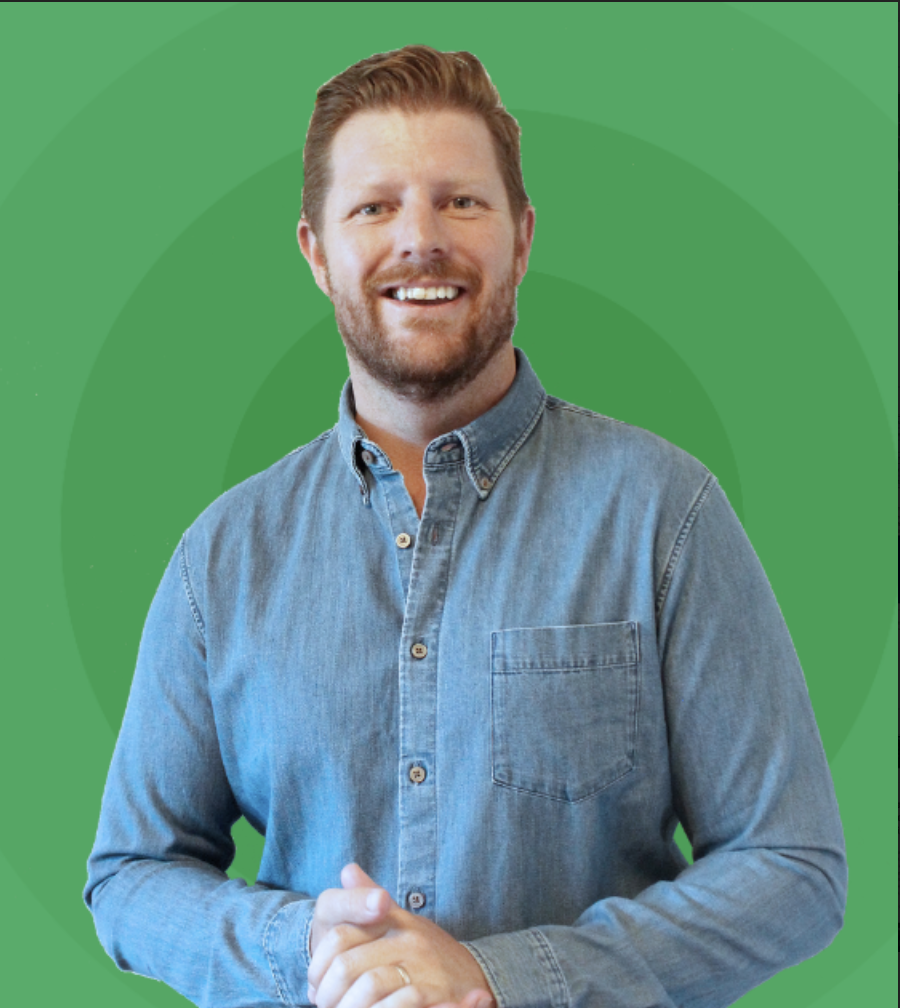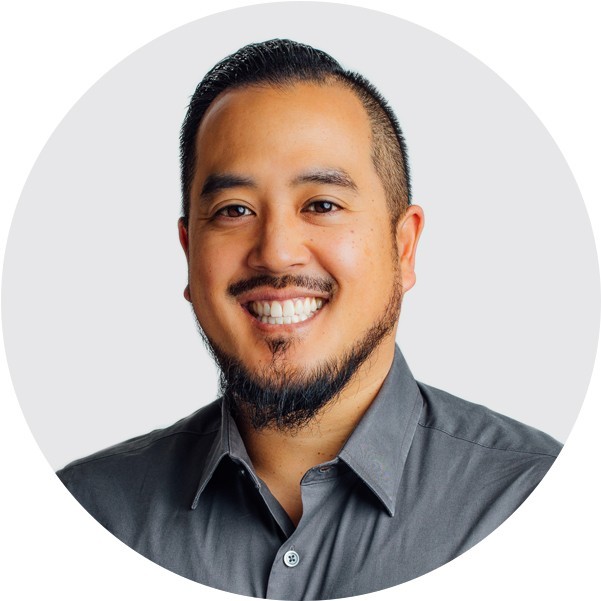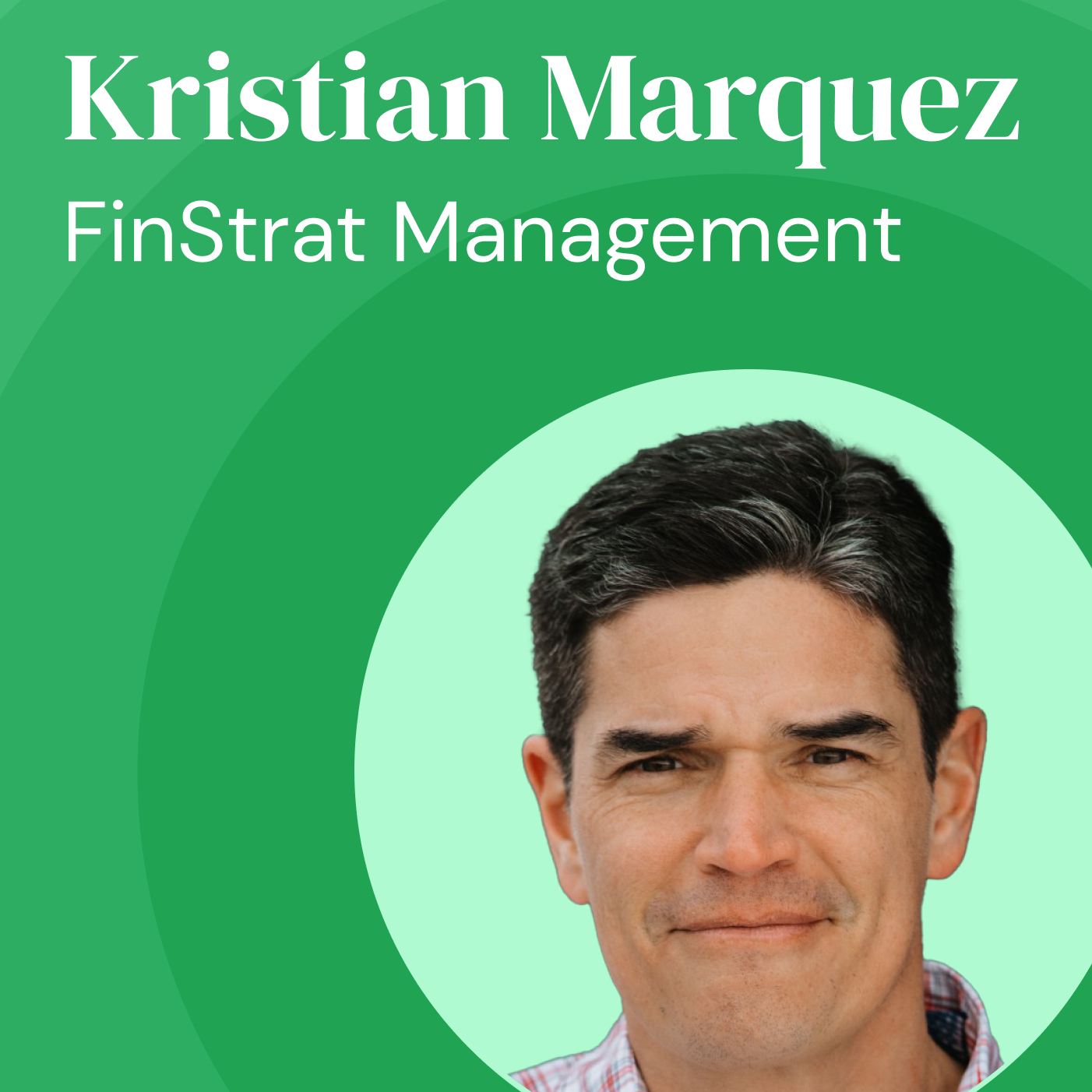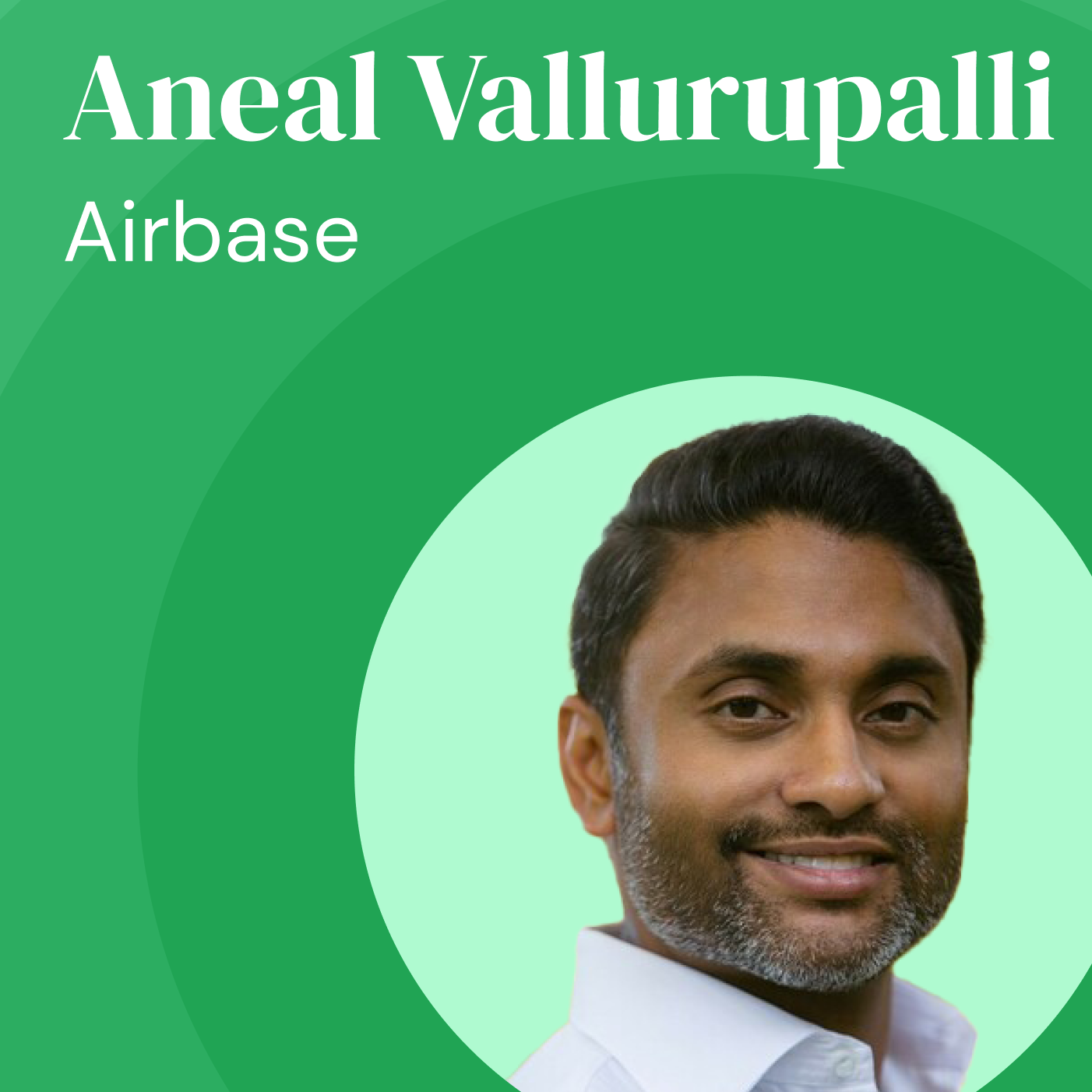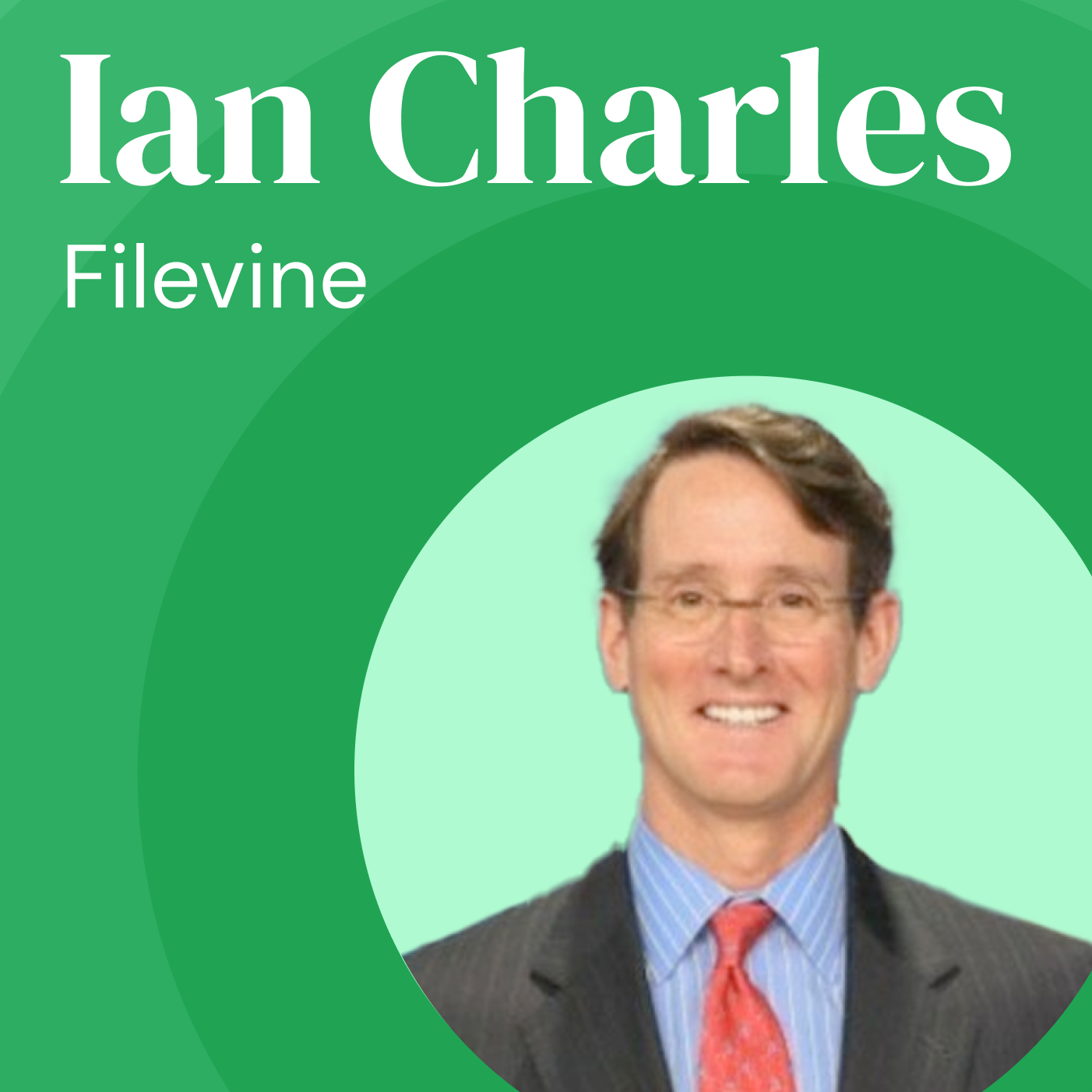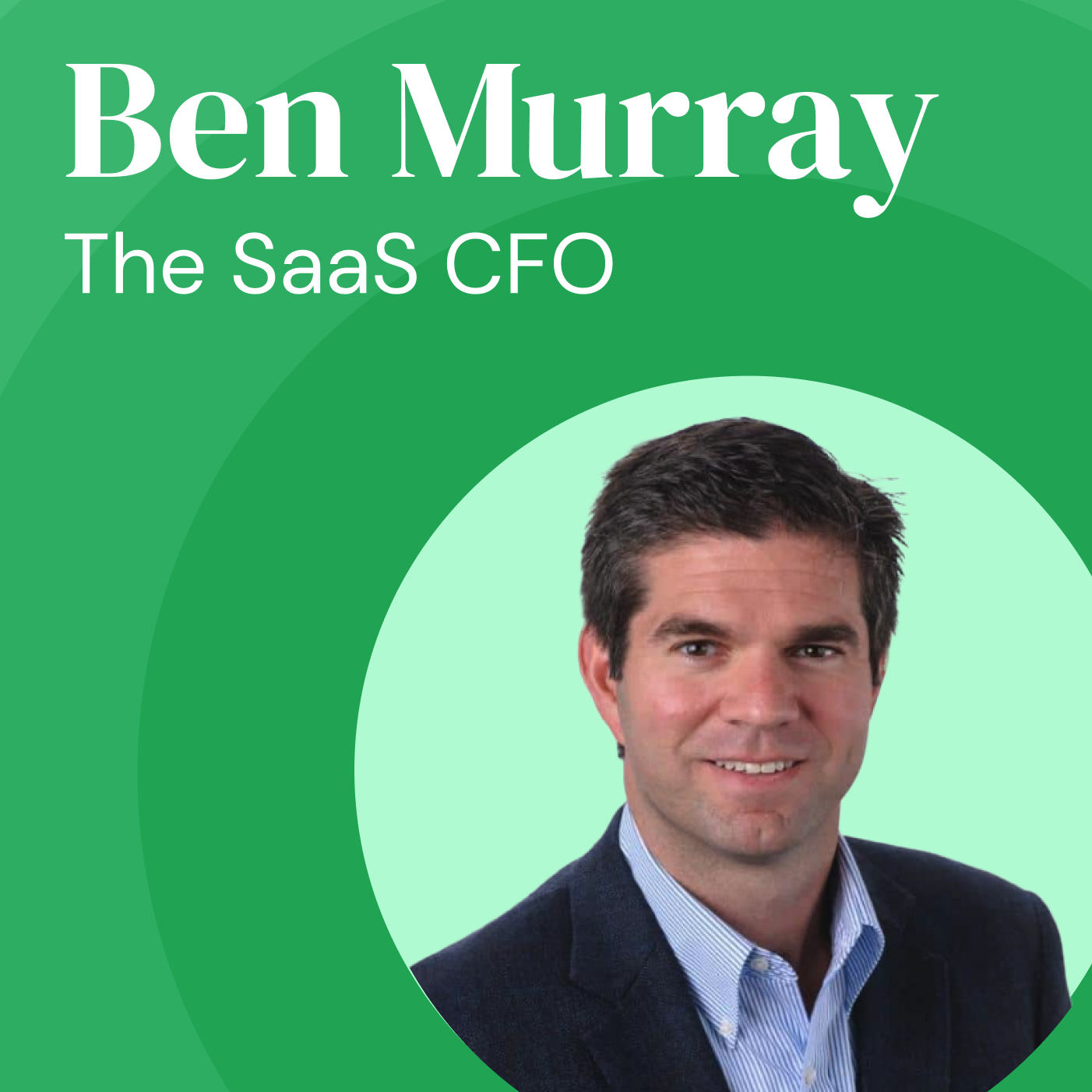Driving Company Culture as a CFO | Erik Nakamura
- 0.5
- 1
- 1.25
- 1.5
- 1.75
- 2
Rowan Tonkin: Hi, I'm your host, Rowan Tonkin, and welcome to Being Planful, the show for FP& A leaders and planning experts. Hi, everyone. Welcome to Being Planful. My name's Roman Tonkin, your host today. I'm joined by Erik Nakamura. Erik is a CFO at Orange Comet, and Erik's got a really interesting kind of perspective on the role of the CFO that he's going to share with us today. And I think it's a different one that we've talked a lot about on this podcast. So Erik, why don't you unveil your perspective on the world of the CFO, and how actually something different can come from the CFO, which is the world of a CFO drive culture.
Erik Nakamura : Thanks, Rowan, appreciate that. I think let's start off with an area of culture in that what is it, how do companies define it? What does it mean? It's a word that's thrown around a lot by companies, but it's not clearly defined. And I think that's the first thing is as a CFO, what does it mean to me personally? And then what does it mean to my company and how do I attract, retain, enhance, train, the best talent by having a good culture at the end of the day? I think that's important. And I like, from the office of the CFO and to all my finance heads out there, having a great culture can reduce costs, can reduce turnover, can reduce opportunity costs and a lot of things. And so people that are just purely number based, which I deal with a lot of that in finance.
Rowan Tonkin: Yeah.
Erik Nakamura : It's important to understand that that's a piece, but also it's building the right DNA of a company and who you want to be when you grow up. And it says a lot about the company, the leadership, and the people at the end of the day. And so I think the first thing is identifying what culture means. And for me, I look at it in three ways. I have three pillars that I look at companies that resonates with me quite a bit. And the first is I want to work with people I trust, like, and respect. And that's a non- negotiable for me. I think trust, like, and respect. It sounds like a no brainer, but I've worked in environments, and Rowan I'm sure you worked in environments, where you worked with a- holes that you don't really enjoy working with. And I try to implement the no a- holes policy wherever I go. And so therefore, I have to recognize, if I'm an a- hole that I can't be one. Two, the people I work with, I want to get to know them and know who they are and what they're about. And I think as an executive, it's important for me to meet the executive team in formal and informal environments to see how they interact with each other. Is the executive team yes men and women or yes people to the CEO, or do they just kind of kiss and go along with whatever he or she says? Okay, maybe that's not an environment you want to be in. Or do they actually challenge each other? Do they have the right trust and respect to have conversations where they say," Hey, I don't agree. And these are the reasons why, and let's have a healthy, trusted discussion about it." If you're in an environment where you don't have that trust and respect, and you maybe work with a- holes that have a subversive tactic or strategy underneath, you're not going to have that challenge. Or I can't say to Rowan," Rowan, I disagree with you." And Rowan may maybe like," Well, I don't like Erik. And so I'm going to come at him in a certain way or something." So I think it's super, super important to have that and see their interaction. Do they have that? Do they have innovation? Do they have collaboration? Are they able to speak freely and build the right culture in that aspect? And inaudible is not a democracy, I do understand that. It can sometimes... And it has to be a dictatorship due to time, money, budgetary constraints, whatever it may be. But I truly believe that innovation, collaboration comes through challenging each other and not always going with the norm. Disruption, but you want to be able to say," My experience is different than Rowan's and different than Joanne is and different than Jennifer's." And we have to be able to challenge each other to say, can we do things differently and be better? And so that trust and respect has to be there. And the trust and respect is very important. And like, I mean, you want to work with people you like at the end of the day. It's much easier for me to have a conversation with Rowan, with somebody I like than with somebody I don't, at the end of the day. And generally you don't like that person because there's no trust and respect.
Rowan Tonkin: Yeah.
Erik Nakamura : And so I think it's super important to have that as the first pillar of establishing a culture within a company. And as a person, as a CFO, if I go to another company executive, I want to make sure that I have that with the other executives and other team members as well. Does that make sense?
Rowan Tonkin: Well, it makes a hundred percent sense. I mean, you think of the five dysfunctions of a team, and one of those major issues is... There we go, he's pulling it up everyone. For those that can't see at home while they're listening, Erik's reached back behind him on his desk and he's got the book there. But without trust, you can't have healthy conflict and without healthy conflict, you can't talk about the hard problems that are occurring inside the organization. And to try and move a business forward, you have to have conflict. We're not all going to turn up every day A, our best selves, but B with the same ideas, the same opinions, the same philosophies of how we do things. And so driving that culture is hugely important. So I fundamentally agree with that first pillar.
Erik Nakamura : I love it. And I think, and you know this in your career path, when people leave companies, they're not leaving a product or a service, they're leaving the people they work with because they're not appreciated or they don't like the people they work with. It's generally not," Oh, this product sucks. I'm going to leave the company." Well, it could be, I guess, but generally it's this product can suck, but if the team is great, the culture's great people will stay. If the culture's bad and the product's fantastic or the service fantastic, people generally will leave. It's just the way it is. So I think that gets into the next pillar is the business opportunity and the problem, the TAM or whatever you want to call it, that the company's solving. I think that is very important. Something that I look at my second pillar is what is their TAM? What are they addressing? Is there a problem they're solving? And is there a potential for good execution into that plan? I think we talked about this before, the travel to space vertical or market, I think there's a large TAM there. Is the execution into that business in the next two to three years are very high? No, there's only a top 1% of people can afford to fly to space. It's going to be$ 250,000 to have$500, 000 so who's going to be able to inaudible? But I think there's a huge opportunity there. I think there's a huge TAM down the road, but execution of that's very, very tough because technology was lagging behind. I mean, we just saw, I think SpaceX or think a launch recently just got canceled because one of the rockets weren't cooling the way they want the cool. So I think it's tough. So I look at, is it the right people? Is it the right business opportunity? And those two things synergistically, can they execute together? I think is important because that makes people feel good about what they're doing. They believe in the service or the product. They believe in the delivery. They believe in the execution. And also, they have ultimate belief that the team leading and the team executing can execute and do it at a very efficient and high level. And I think that's when you create these synergies and it's almost like wildfire. It catches and it becomes infectious within an organization, the culture of the people, the execution, the success. And you put yourself in a situation, generally I try to anyways, where if you have those things, you can have excitement and energy and synergy, and it's a lot of fun at the end of the day. And that's super important where you want to be as a person, number one, I think first and foremost, and number two, for a company to have success is having those two ingredients or those two pillars are very large pillars or foundational elements that can help a company to be successful at the end of the day. Does that make sense?
Rowan Tonkin: Yeah, it certainly does. I mean, as the marketer in the room and a lot of people sit here and they go," Why do you guys spend so much time on words, specifically words and things like mission and vision statements?" It's not because we care about one word or the other. It actually is really important that you care about those words because that mission and vision statement is exactly what Erik just described there. It's the purpose and the opportunity and the challenge that that business is solving. And so when you are talking to companies or you're employed by one, think about that mission and vision statement, because if it doesn't reflect your personal purpose or your personal alignment, your personal values, the company's values. If you see the company acting in dissonance with that, you can often spot problems in the business itself. But those things are really, really important because they actually drive a lot of the decisions that an organization makes. And there are some fantastic mission and vision statements out there in the world. Google's of unlocking the world's information is just fantastic. It allows them to do lots of different things, but with that clear purpose.
Erik Nakamura : As you mentioned, I think it has aligned with you personally. Because I was just listening to some VCs present recently, and one of the VC folks, she was an entrepreneur before and then became a VC and investor. And she says," Do things that you care about, do things something you're passionate about, because if you do, you're going to put your full effort and care about it and put your full energy and effort into it. And it shows, and it becomes infectious. You have to really care." And she said," Don't do things half- ass. You can, but genuinely you're going to get half- ass results," or maybe even quarter- ass results. I don't even know if that's a word, but I'm going to make it up on this podcast right now. But I think it's super important. And I think it gets to my next pillar, dovetails nicely into that is ESG impact, DEI initiatives. It's very sexy right now. And it's very top of mind and there's a lot large funds that are being invested in that. There's requirements for board members to be minorities or women. There's all these things are going, especially in the day in world of politics that we have now. For me being a minority, and also my mom, I think I mentioned to you this before, my mom was a CFO of inaudible. So she grew up being a CFO of inaudible in a had very old school male- dominated environment. As an Asian female, she had to be tough and it's how the things she had to go through. And it inspired me to say, we have to do something different. And I have four sons and I try to teach them to be good human beings, number one. That's the first and foremost, and the other things may come along and be good human beings. And it's important that I help use my platform, especially within companies to put ESG impact or DEI initiatives and measure them, put KPIs and metrics in place. Put a Rooney rule in place at companies that I go to. And if you're not familiar with that, that's something they put in the NFL where all head coaching positions at GM positions, they have to interview a minority candidate. In the NBA, they have to interview women candidates now and different things. If you want to disrupt and change things, you definitely have to get different perspective and different sets of views that are diverse and different. If you hire the same people that have been doing the same thing for 20 years, you're going to get the same results. And it's a little bit out of people's comfort zone because you want to work with people that look like you, act like you, talk like you, but if you truly want innovation and diversity and disruption, you have to go and find those people because those people are not going just to come to you. Because look, as I know, as myself as a minority, if I look at two companies and I look at the executive teams on the boards and one has diversity from minorities, women, and the other one does not, which one do I think I'm going to have the most success in? All things being equal, which one would I choose? I would probably choose the one with more diversity. So those things are being looked at. And I think we have to be cognizant of how we present ourselves and our culture in that way. Because it's important in that after the great resignation, and things have changed a little bit in the past few months obviously, but attracting, retaining the best talent, it's key to have those in place because you want to attract those folks. And if you have these things in place, you will attract those people and retain them. Because as you know, turnover is high. If you have high turnover, it's so much more costly than to just retain people and good talent at end of day. And number one, to build a great company, have a great culture, you have to have great talent and have people that believed in your mission. But that diversity aspect and the DEI initiatives I think are so important. And also just the other pieces of keeping green or less emissions or donating to mental health or whatever your causes are, environmental stuff or whatever it is, those are things that now that employees demand as part of the culture DNA of company. Before it was free food, free food in the office, or a nice office, career path. All those things are table stakes. Now it's like we want all those things... Well, maybe not. Maybe work from home is another one now.
Rowan Tonkin: Yeah.
Erik Nakamura : But the other one is now is I want to make sure my company is donating or I have volunteer time to donate time to build houses in my local community, or I have time to donate to mental health, or I'm going to help it speak on minority or women panels or whatever it may be. I think having those things and having those initiatives, along with your company and things you solve and do, adds to the culture and fabric that enhances the value of company at the end of the day. And I think it's super important that we, as the executives, understand what those are, measure them, and be honest with ourselves at how we're measuring, what is our expectations, how do we perform against those KPIs. Just like any other business KPIs. People are like,"Oh, those are soft HR KPIs." Maybe they are, but they are important. And we need to have those. And that's kind of my three pillars I look at. If that company has those three things, I can be successful there and all the other things, titles, money, all that stuff... I've been very lucky in my career, that stuff I think just figures itself out, if you find the right things and you focus on the journey of how you get those things, rather than the end of the journey or the result, the goal of being, I want to be a board member, chairman, CFO, whatever it is. And I want this. That stuff will take care itself, if you really focus along the path of what you want, identify it, articulate it. And then also as you become influential in a company, make sure your company understands that, can identify it, articulate it, measure it, and communicate it to talent that you're acquiring and you keep in the company and make it part of your DNA and your fabric.
Rowan Tonkin: Yeah. I love that. I read a book a number of years ago, it was called The Purpose Effect, and I forget the guy's name. I think it was Dan Pontefract or Don Pontefract. But basically it talked about alignment at three levels, specifically for people wanting to... when they do their best work, they have alignment in the company's mission and vision and its purpose, the purpose of their role itself, and the purpose of their personal kind of vision and mission for themselves. And if you are in alignment with all three of those things, then amazing things happen for that person in that company at that moment in time. Anytime you step out of alignment, it becomes more difficult. Maybe the role isn't where you want to go with your career, but your personal growth and your professional growth are going well. The company's mission is aligned, but the role doesn't fit where you are in your career right now. And so that makes it hard for you in that environment. So as people do listen to this and think about that, think about where do I fit within those pillars of my world or your world? Do I fit the company's mission and vision? Do I align with it? Do I align with my current role? And does all of that align with me personally?
Erik Nakamura : Right, I agree 100%. I hope what people get out of this is start thinking about these things and having those conversations and identifying them because it's taken me years to identify what those things are. And maybe I knew them in my mind, or I kind of knew what it was, but I wasn't able to articulate them appropriately. And then if I'm able to articulate them, I can ask the company, what are theirs? What are their values and how does that align with mine? And I think it's super important at least to have that conversation, identify it, and then you'll know right away, is this a good fit or not a good fit, so it doesn't waste people's time. But also as companies, we are all competing for great talent and good people. And if you're able to identify these things and be able to articulate them through talent acquisition and retention and all these learning development things you put in place, you're going to be much more successful as a company. You spend less time acquiring talent, you're retaining talent, and that turnover is a lot less and it just creates a lot more value in the company. And I think one of the things that I've said to people before is that when I die, I don't want my tombstone to say" CFO" or whatever it is. I want it to say," Good husband, good father, good whatever, good brother, good friend." And those are important things really at the end of the day. And this kind of leads back to, which is very interesting, I was listening this VC panel. And back in the day, you remember too Rowan, startups, you did whatever,"We're going to crush it." You're like," I don't care who stands our way. We're going to go. And we're going to work as hard as we can. We're going to do whatever it takes to crush it and kill it out there and go, go, go, go." And it's hurt people's personal lives or people get burned out. People don't... And I think there's a much more focus on mental health now, more conversations, work life balance. And I said, feel good and you should be doing things because you want to, not because you have to at the end of the day. So people are doing things at work and they're hitting the keyboard. Every time their fingers touch a key because they have to, they get more and more bitter. If you want to do it, you'll do it. And I know you've been in that case, I've been in that before and I came up to saying," We work to live, we don't live to work." And I think that's important. And other quotes, I've heard that from Albert Schweitzer and one up here that says," Success is not the key to happiness. Happiness is the key to success. If you love what you're doing, you will be successful." And it sounds so cliche, but I think you have to stop and actually think about that and make sure that's happening in your life and your career. Because if it's not, life is short, do something else. You know what I mean?
Rowan Tonkin: Yeah.
Erik Nakamura : There's plenty of opportunity out there. I mean, no one's forcing you to be where... If you're not happy... And you've worked with people like this, I've worked with people that are the negative, the haters, and just every time you talk to me, you're like, man, it just sucks all the positive energy out of the room. At the end of the day, you're like," Go do something else that makes you happy. Don't do this." Because you're sucking the life out of all of us, number one. Nobody wants to talk to you, number two.
Rowan Tonkin: Yeah.
Erik Nakamura : And it's not fun. It's not fun. We spend a lot of time here. I want to work with people that are energized, love it and want to be here and understand the value prop of who we are and push forward. And it's important I think. And one more thing that I'd add, I think we talked about it before is having the diversity, making sure people include it, and listening to all ideas is important. There's the Hot Cheetos, the Frito Lay Hot Cheetos story that we talked about before. If people don't know, I'm sure people have heard of Hot Cheetos, it's a billion dollar franchise for Frito Lay. They sell probably the most of their chips through that franchise. That was developed by a Latino janitor, I believe in the eighties or nineties, and he brought up the idea of let's put hot sauce and lime on cheese Cheetos and sell it as a product. They listened to him and now they have a billion dollar franchise. If they weren't open and had the right culture. If they said," No, no, you're just a janitor. We don't want to listen to you" or whatever it may be, they would never have a billion dollar franchise. So again, innovation, diversity, it comes from many areas and you have to be open to listen to it. And that's how you get better at the end of the day. So I think all these things align to drive revenue, to reduce cost, and create a great culture and value for the company at the end of the day. Which as a CFO, these are things I could tangibly measure and go out say," VCs or PE, our valuation has increased because we've built these things. Here are our values. Here's how we're achieving our goals. Here are our metrics. Here's ESG impact, DEI initiatives. Here are the things we're measuring and this is who you're investing in. And you want to invest in us now because we're a great frigging company and we have great value and this is what we're building for the future." And I think if you can articulate that, it's something refreshing for people too, because they don't necessarily hear that. It's about revenue growth and metrics and all those things and cutting costs and bottom line for sure, I'm a CFO for sure, but all these other things add additional value that people don't really expect at the end of the day.
Rowan Tonkin: And so coming back to one of the things that you were talking about is people want to work with people that are happy. Barbara Corcoran at our Perform conference, it's one of her kind of seven keys to success was hire happy people. And it sounds so simple, but the reality is when people are happy and they're enjoying their work and enjoying their life. And to your point, they've got that kind of work life balance, or some people don't call it balance, they call it work life integration. Depending on again, if it's your passion, then you'll do it more, you'll work more because you're like," I'm passionate about it. This thing is fully aligned. I'll integrate my work life with my personal life if I need to." And that really just drives individuals to want to do more but you've got to create that culture where people feel that. And that the Frito Lay example is fantastic because how many companies would listen to their janitor and discover a billion dollar idea? A, how does that go from the janitor to someone's office, who's in charge of product strategy? At some point, there was a system in that business that was built to realize that innovation is key to their growth and they've created some sort of environment. I don't know what the system was, but that facilitates that insight coming into them and they take everything seriously.
Erik Nakamura : And I think the trust and respect and like was there because nobody stole his or her idea. I didn't know. Nobody stole it.
Rowan Tonkin: Yeah.
Erik Nakamura : Because easily someone could have said," That's my idea. I'm going to pitch that," and took credit for it. I know you've been environments like that. I have as well. So I've been on the other end where it was my idea, and you're like," Wow, what an a- hole."
Rowan Tonkin: Yeah, yeah, yeah.
Erik Nakamura : And you're like," Wow, you really just said that and you knew that was my idea." But you're in an environment where you don't have trust, like, and respect so you don't even want to put your hand up sometimes. And so that was key to listening diversity and having the trust, like, and respect that that person felt like they could be trusted to pitch the idea to somebody. I'm sure it was at the lower level. It didn't get up to the executive team right away. And it was trusted that he or she would get credit for that idea which is key.
Rowan Tonkin: I hadn't thought about that. But that is a massive part of that narrative is ultimately that they want to tell that story too. They want to celebrate that individual and hopefully they got promoted and got moved out of the janitorial services division into product management or product strategy.
Erik Nakamura : Right.
Rowan Tonkin: The question I have for you, Erik is how did you come to this philosophy? It's not common that CFOs just come out of management school or business school or come out of their CPA and they've got this," Do you know what I'm going to make these numbers work through culture." And I think you've alluded to it in your third pillar, ESG DEI and you talked about your mom, but how did you get there?
Erik Nakamura : It's a great question. I think over the years, over 22 years in now, this year, it's crazy. It took me some time. And when I was younger, I was immature and impatient and I always wanted to get places faster and I want to have this title. And I talk about that because I've really changed my philosophy over the years. And I think it took some humbling, number one, and really listening to others. A lot of people say, treat people how you want to be treated. And I was like," That's actually not true. You treat people how they want to be treated." So not everybody wants to be treated the same way. Not everybody has the same speed. Not everybody has the same aptitude. Not everybody has the same thoughts. So you have to read, understand your audience in the room and treat them how they want to be treated to be influential. And so through my career, in the beginning, again, being very impatient and immature, I was maybe running into some roadblocks sometimes. And sometimes I bang my head as I go," I don't understand." And so I said after a while, it's the three, I'll say it again. It's the three a- holes rule. You meet the first a-hole, you meet the second one, the third a- hole is you. So you really introspectively look at yourself and say," What am I not doing? What am I not doing?" And so I began to develop, as I went to go look at companies and do things and be influential in the companies I was at, what's the best way going about it? And I began to watch great leaders or different people in the company and took different things from them and begin to piece it together. And it helped start to find who I was. And I said, as I'm going out to look for different roles, sometimes I said, what's important to me? I asked myself, what's my brand that I want to go out there and be able to communicate to these companies why they should hire me or why we should be aligned? And it came naturally. And it's funny because my wife and my kids have heard me be and say this thing many times. My brother, my family, they've heard me say these three pillars. And so whenever I talk about it, they jokingly talk smack to me," Oh, here's Erika and his three pillars again. Here he comes." It becomes-
Rowan Tonkin: Dad's on a rant again.
Erik Nakamura : Yeah,"Here he goes. Dad's on his soapbox." But it truly is true. But the good thing is that they're listening and that people are listening because I think it resonates with people. And so it took me time to develop it through many different avenues and being humbled in some ways, and also being open to listening to other people and really understanding what I was looking for. And it took maturity and time and it was well worth it. And again, and I always say this, it's about the journey not necessarily about the destination. Enjoy the journey while you're on it, because it's going to pass you by. Time goes quickly. As I approach 50 close here, it's getting faster. Time's going fast. So I want to enjoy this as much as possible for sure.
Rowan Tonkin: So lot you talked about enjoying the journey. A lot of our listeners are earlier on in their journey than where you are now and they're aspiring to get to, I'm not sure if I would call it the destination, but they want to be on that path. They want to get to the lovely C- suite title. What advice would you have for them as they kind of embark that, where you may be able to impart some wisdom to either help them not require a humbling experience potentially, or find a not necessarily, I don't want to say shortcut, but find the guiding principles for themselves to try and not make some of those mistakes?
Erik Nakamura : Yeah. That's a great question. I think get a mentor or get somebody like myself or get anybody that you trust, like, and respect and you say," Hey, can I just pick your brain? Can I talk to you? Let me understand your path." I have four sons. I've coached baseball and basketball from when they were four years old, all the through high school. And I definitely use that coaching and mentorship approach to my teams at work, but also my kids, the teams I've coached, and I love mentoring and teaching people number one. And so go out and help find somebody or talk to somebody. I'm part of the CFO leadership council and on their steering committee, and all the time emails come out like," Finance person, director of finance is looking for a CFO mentor." And so I'll volunteer, if I have the time. I have a few folks I talk to on a biweekly basis and help mentor them and talk through what they're going through. Other CFOs I've talked to just because you need somebody to chat with and understand that. And when you're able to articulate it and get it out in the open, it's super helpful. And I think that's what I would suggest, it's someone that's been there and can give you some advice. It's helpful. And also I think two of the biggest characteristics of an important person, and I'm not going to say executive reps, just say important person is confidence and humility. I think those are completely... Confidence, people are like," Oh cockiness..." No. Confidence is you have confidence to say," I don't know," or" I'm going to ask somebody else, or" I don't have to fake it to make it. I don't really know." Or," I need to hire good people around me because I know my shortcomings. I'm self- aware and I have humility. I'm humble." Humility is most important. I don't know everything. I want to make sure I can continue to learn and grow. And I'm always trying to figure out the best way. My way is not always the best way. I'm always open and listening. I think those are completely underrated and I've seen the best leaders and the best people have a balance of those two things. Because they're confident enough to say they don't know and have humility to say it and say," Hey look, I'll take all the blame. It was my fault. I'm going to give all the credit to my team and those people," and lead them. Don't tell them, lead them. Lead them in the right way. And I think it's very key for people, as an aspect of a great leader or a great person, understand those two aspects of yourself and are you those things? And if not, why are you not those things? And what can you do to become those things? Because they are two aspects of a great human that is so, so important that people get drawn to. That people will follow. That they'll say," That person's a leader," regardless if you say it. Just because someone says they're a leader doesn't mean they're a leader. People follow leaders because they have a gravitation toward them. They can see that person's a leader. They have energy, they have passion, they have confidence. They have humility. They could speak or they're good at execution or whatever it may be. But people tend to find those people and notice it. It's not because someone says it or crowns them with the title. It's because people realize it and they say,"That person's going to be somebody someday. And I would follow them through a brick wall."
Rowan Tonkin: Yeah. Hopefully, people don't have to run through brick walls for other people listening. But I do want to come back to the mentorship element. I see a lot of people and they think about mentorship and they think," Oh, well my boss is my mentor." And that can be true. There's plenty of good bosses out there that are good mentors, but also go and find a mentor outside your organization because they can offer different perspectives and different viewpoints that you may not be thinking about because you might be stuck in an environment that has a specific way of thinking or a specific thought process or whatever. But have a think about who outside of my organization? Maybe you look for peer organizations or like for like or go completely random too. Don't rely on your boss to be a mentor because often they might be under- resourced, understaffed, and they don't have time to be a mentor either. Go out and look for other mentors in your environment because that'll help you be a better teammate to your boss as well. You'll come with new ideas, new innovation that they start to see and respect more.
Erik Nakamura : I agree. I can agree a hundred percent, Rowan. I think if you're very venture out into areas beyond your immediate network, you're going to get the diverse sets of views, different perspectives and experiences. And CTOs, CIOs, whatever, CHROs, CMOs, they have different qualities and aspects of them. So generally, you want to pull from the best aspects of all people. Finance people, and I'm going to over generalize because I'm a finance person, we are seen as the cops and janitors. We're the number of crunchers. But I try to create my brand or a brand of a CFO that we're more than that. We are that, that's table stakes, but we can add a lot more value and have a seat at the table and make a difference. And I think that's important. That's something that I like to do and I'm passionate about as well. But I agree with you a hundred percent. If I didn't have a great CEO, a CEO that I had in the past that I'm thinking of, I probably wouldn't be the way I am because I took off some of his aspects of characteristics. I thought," I want to be like that." And I watched him and I understood him and I watched people get engaged and how he influenced people and how he was patient. And he wasn't a bully sometimes, or sometimes he had to be, and sometimes he sat back. And it was very refreshing to see how he was able to affect and influence and lead people by using various techniques and understanding the audience and the people he was talking to.
Rowan Tonkin: Yeah. I really like that. Well, I think we're coming up to time here, Erik, and this has been an awesome conversation. So I want to ask any final parting thoughts, number one and number two, how can people get in contact with you, connect with you to learn more?
Erik Nakamura : Yeah, sure. My email, I could send my personal email. Should I give it up to you or should I just say it on cam?
Rowan Tonkin: Yeah. Or LinkedIn, maybe.
Erik Nakamura : LinkedIn, Erik Nakamura.
Rowan Tonkin: You don't want all these marketers knowing your email address.
Erik Nakamura : Right. So how about LinkedIn for sure. Connect with me. I pretty much connect with everybody on LinkedIn. So reach out to me through LinkedIn, Erik Namamura on LinkedIn, Erik with a K by the way. And Namamura is phonetically how it sounds. And so that's helpful, but I know people don't always spell it right so should be on here. The last thing I would leave with and it is cliche, but enjoy what you do and be passionate about it. And I tell this to my kids all the time. I said," I don't care what you do, but do something you love because life is short." If you get stuck doing something for 20 years you hate, you just wasted maybe a quarter of your life, a third of your life it could be, you know what I mean? Just do something you enjoy, love, and go for it. And if you make mistakes, so what. Don't be afraid to make mistakes.
Rowan Tonkin: Yeah.
Erik Nakamura : That's life. When you first rode your bike or you first wrote a letter, you didn't do it perfect. You made a mistake. It's how you get back on the horse, how you correct yourself, and you respond to that. That shows what you're made of, right? You're going to make mistakes. Go so hard that you make mistakes and then you figure out how to correct yourself because you're self- aware, and you have the confidence and the humility to say,"I made a mistake and I'm going to correct it." I think that's one of the biggest things I could say out there. Because I haven't been perfect. I've made a ton of mistakes and hopefully I've learned from them to get where I'm at, which is not necessarily saying being a CFO, but where I'm at being a good human being and being able to speak about these types of things.
Rowan Tonkin: I love that. So finally, thank you, Erik. Really appreciate your time on today's episode. And hopefully, I'm sure with those sorts of values, the tombstone or the gravestone will read," Good human being, great father, great husband, good friend." So thank you Erik for your time today. Really appreciate it.
Erik Nakamura : Thanks, Rowan. Take it easy and we'll chat soon. Thank you.
Rowan Tonkin: Make sure you hit subscribe on Apple podcast, Google Play, Spotify, or wherever you get your podcast, so you don't miss an episode. Thanks for stopping by.
DESCRIPTION
Take a deep dive into all things company culture with Erik Nakamura, CFO at Orange Comet. In this episode, Erik shares his thoughts on a CFO’s role in defining culture, how focusing on diversity, equity and inclusion leads to innovation, and why treating your people how THEY want to be treated will drive success across your organization.
